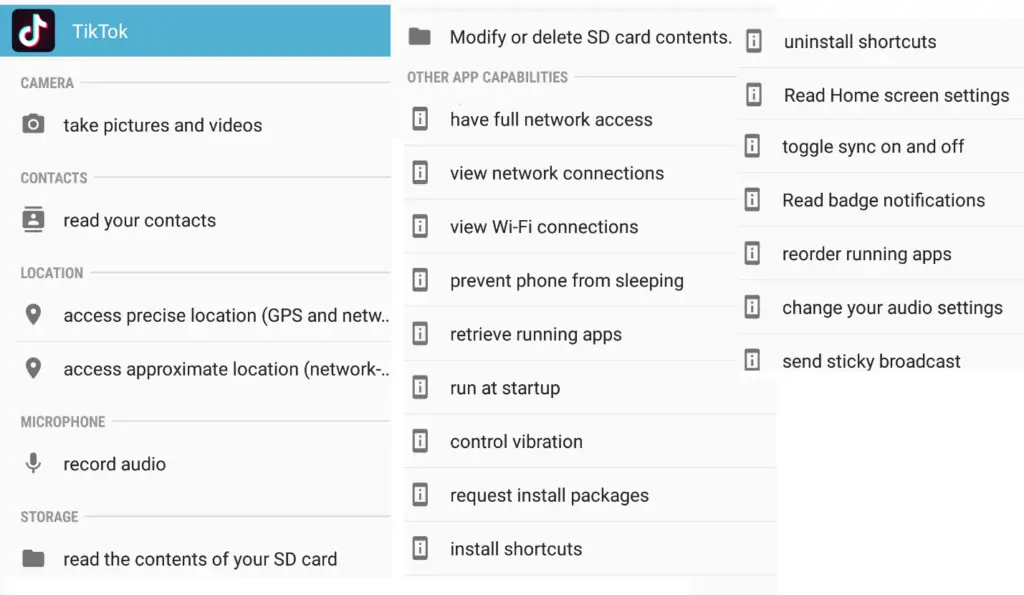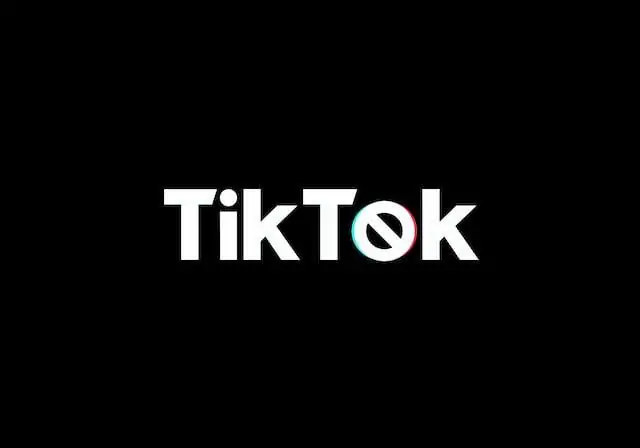TikTok, like other once-nascent social media apps before it, has become the number one mainstream app for social influencers. Digital marketers are finding it to be a haven for uploading fresh, engaging, and relevant content to a broad audience of billions in the hope their brand message will go viral.
But TikTok’s popularity does not mean it has shed its issues when it comes to security or the risk of tarnishing your carefully-cultivated brand and reputation. Regardless of how tempting it is to ignore these problems for the sake of leveraging TikTok’s massive success, you should at least consider the following threats to you, your brand, and your customers.
Reason 1: Customer Privacy and Security
Digital marketing departments often don’t concern themselves much with security. That’s IT’s job. But with TikTok, they should.
Think about it this way: If you were notified by a user that your website was infected with malware and was distributing it to every visitor to your site, that would be a big deal! You would immediately notify your web or IT team to address that issue right away.
While it’s the choice of individual users whether to register for, download, install, and use the TikTok app (or access their website), there is a non-zero risk that people could associate their pathway in your brand’s customer journey chart with a TikTok privacy or security violation. In turn, whether justified or not, that negative experience could blow back on your brand. Especially if you have tightly integrated or exclusively tied your brand with TikTok.
Reason 2: Brand Association with Censorship and Human Rights Abuses
One area that digital marketing and public relations departments do concern themselves with often is social and reputational blights to the brand.
Business owners generally seek to separate themselves from controversial things as much as possible, including the drama of international political and military intrigues. It’s a distraction most small businesses cannot afford and that large enterprises prefer not to have to deal with. However, sometimes it lands on your doorstep in a way that is impossible to ignore. You must deal with it quickly and effectively to protect yourself legally, financially, and reputationally.
Social media used to be a playground where, aside from people using it to discuss hot political topics, political interferences were the exception, not the norm. When a regime sought to censor or use social media for surveillance or human rights abuses, the outcry from both the social platforms under fire and their users, including businesses trying to operate in those nations, was enormous. In several cases, those regimes subsequently turned down their censorship or reformed their behaviors so as to avoid scorn from the international community.
That world has changed with the advent of TikTok.
Known in China as “Douyin”, TikTok is owned by ByteDance, a company founded by loyal members of the Chinese Communist Party (CCP) for the direct, acknowledged purpose of publishing CCP propaganda throughout China. China’s government also uses Douyin to spy on, censor, and discipline its own citizens by imposing punishments for unsanctioned content posted there.
So, it should go without saying that, as a brand, you don’t actively seek to become entangled with regimes that regularly abuse their own citizens or people of other nations, spy on them, and censor their expression online or even privately. Yet, in actual ethical effect, this is exactly what brands sign up to do when they eagerly register for an app account and begin publishing, sharing, and engaging with content, or asking their users to do the same.
One might argue that the “norms” have evolved such that everyone knows the bargain and that the risks are manageable. However, all it takes is one major international incident for that house of cards to fall and for brands to be exposed to bad public relations.
In addition to past abuses against Uyghur Muslims or China’s actions against Tibet, consider the likely future scenario of China invading Taiwan and Douyin/TikTok users being disciplined for speaking out against it. Do you want your own presence on the app to be associated with war, atrocities, and active censorship, especially if the CCP decides to threaten your brand account with shutdown if you don’t toe their line and carry their message?

Gone are the days of clicking “Update” and hoping for the best. Let Webidextrous manage your maintenance. We’ll give you back your time and peace of mind.
Reason 3: Your Own Privacy and Security
It’s easy to download the TikTok app to any phone or tablet device. It’s also easy to assume that the Google Play or Apple App stores have your best interests in mind and would never let you download an app that would compromise your personal privacy and security.
Indeed, these major app stores have made a lot of updates to their terms of use and security policies and features to help ensure that you’re protected.
There have been security-related bans of the TikTok app in the U.S. military, other Biden administration government organizations, and even (briefly) at Amazon.
So why do Google and Apple still maintain TikTok as a trusted part of their app catalogs?
Reason 4: A TikTok Ban is a Brand Ban
If you don’t own a channel, you’re not in control of it. Just as you wouldn’t rent your own website from another provider (at least I hope you wouldn’t), you also don’t want to hang your entire brand on just one newly-popular social media channel’s success.
The market is littered with brands that created a presence on Facebook, Twitter, Instagram, Pinterest, and the late Google+ platforms only to have their channels shut down.
Sometimes it was due to capricious rules about which types of businesses would be allowed to have a page or handle.
Sometimes it was a mistake by an over-eager social platform employee in banning a post or channel.
And sometimes, as has happened to me, it was being cut off from being able to advertise due to “not spending enough money per month on the ad platform”. Or, more recently, not having a physical address as a remote-only organization and having my listing disabled on Google Business.
If TikTok gets banned in the United States or any other country where your customers live, or if TikTok bans you for “aggressively” selling products or ideas its owners disagree with, you may find yourself losing revenue quickly that you will never be able to recover.
Whatever the reason, it’s not a reason you’re 100% in control of. So, at the very least, diversify your channel holdings.
Reason 5: TikTok May Violate Your Company’s Privacy Policy
Does your privacy policy contain a paragraph or section detailing what you will and won’t do with customer or user information?
That’s great to have. But you’d better have your legal counsel take another look at it within the context of TikTok. That’s because the app constantly monitors and “phones home” with data about users’ engagement with your content. The app sends all kinds of data back to ByteDance (and, if we’re being realistic adult thinkers about this, back to the Chinese Communist Party).
It includes, but is not likely limited to, device brand and model, operating system version, mobile carrier, browsing history, app and file names and types, keystroke patterns or rhythms, wireless connections, and geolocation. Additionally, TikTok records personally identifiable information as well as user data collected from other sources, age, image, personal contacts, relationship status, preferences, and other data collected through its single-sign on feature.

Source: https://www.proofpoint.com/us/blog/threat-protection/understanding-information-tiktok-gathers-and-stores
It’s tempting to think of this being out of scope for your company’s privacy policy and therefore irrelevant for consideration. However, remember that your own use of the app on your own devices, with its tendency to spy on your WiFi and other network connections, as well as leveraging data stored on your device, puts your users’ data at risk. Especially if the app happens to grab data about them from your own network and transmits it to ByteDance and the CCP.
Reason 6: Being More Concerned About Your Customers’ Wellbeing
The UK publication The Telegraph reported on problems that TikTok is causing for teens. This criticism used to mostly be reserved for Instagram, and before that, Facebook. But because of TikTok’s highly-targeted, very accurate AI-based algorithm, it knows just how to torture its users with things they’re better off choosing not to see for their own mental health.
Do you serve food-based content to your TikTok audience? Better watch out for potential harm the aggressive app algorithm is causing to people suffering from eating disorders.
By the same token, do you post cannabis-oriented product content? You might be triggering the algorithm to also show content that would provoke an addict recovering from an opioid addiction.
How about political content? TikTok doesn’t seem to care to discriminate between facts and disinformation or misinformation for certain audiences, especially if ignoring disinformation or misinformation serves the purposes of TikTok’s owners.
Conclusion
There are more than six reasons why you should carefully consider whether to continue using or promoting your content on TikTok. But the primary reasons are to avoid problems with customer privacy and security, to keep from associating your brand with a company that answers to a tyrannical regime, for your own privacy and security, for your brand’s ability to continue transmitting its value to the world, and out of concern for the health and wellbeing of your users.
Even if you do choose to continue using TikTok for your social media portfolio, be sure you have addressed these risks in a way that protects you, your business, and your customers.
Sources
TikTok (Wikipedia) – https://en.wikipedia.org/wiki/TikTok
DOUYIN: The new Chinese propaganda machine – https://massmediandculture.com/douyin-the-new-chinese-propaganda-machine/
Why TikTok is the Latest Security Threat – https://www.cisecurity.org/insights/blog/why-tiktok-is-the-latest-security-threat
TikTok is a national security threat, US politicians say. Here’s what experts think – https://www.cnn.com/2020/07/09/tech/tiktok-security-threat/index.html
Is TikTok gathering data for Beijing? Don’t ask, don’t tell – https://www.thestar.com/opinion/contributors/2022/08/15/is-tiktok-gathering-data-for-beijing-dont-ask-dont-tell.html
Hong vs. ByteDance – https://www.classaction.org/media/hong-v-bytedance-inc-et-al.pdf
FCC Commissioner Brendan Carr Calls TikTok ‘A Serious National Security Threat’ – https://www.billboard.com/pro/fcc-commissioner-brendan-carr-tiktok-interview/
TikTok isn’t just a threat to our national security – it’s endangering our children’s health – https://www.telegraph.co.uk/news/2022/08/11/how-tiktok-came-influence-childs-every-move/
Rob Watson
Latest posts by Rob Watson (see all)
- SEO Learning Outline: 10+ Tips to Supercharge Your Neglected Websites - March 16, 2024
- What are session cookie hacks and why should WordPress users care? - March 8, 2024
- More effective AI: 5 ways your chatbot could be harming your business - February 17, 2024
- 2023 WordPress Maintenance: Critical Issues in Security and Performance - December 4, 2023
- Why Maintenance Matters: How WordPress 6.4 and cURL Broke Sites - November 9, 2023


0 Comments